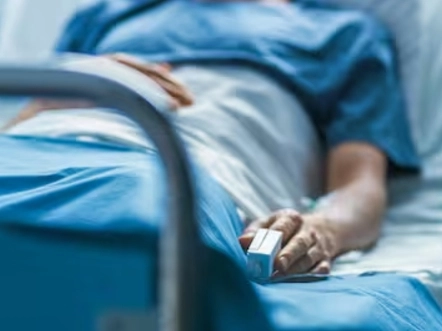
A man in Bhubaneswar whose heart had reportedly stopped beating for 120 minutes was saved owing to the extraordinary efforts of doctors, the hospital administration of AIIMS Bhubaneswar said.
The team of doctors saved the life of the 24-year-old man, Subhakant Sahu using advanced ECPR technology. Sahu is a resident of Odapala village in Odisha’s Nayagarh district.
The hospital administration announced this medical marvel on Monday. According to reports, Sahu’s heart had stopped working due to a blockage.
On the night of September 30, he suddenly felt weak. When his family members noticed his slowing heartbeat, they rushed him to a local medical centre in Ranpur. The doctors there immediately referred him to AIIMS-Bhubaneswar.
According to Odisha TV news, by the time Sahu reached AIIMS, his heart had stopped working due to cardiogenic shock, and his blood pressure had dropped significantly. The doctors tried to raise his blood pressure with medication, but his heartbeat continued to weaken.
Sahu then suffered a cardiac arrest – his heart had completely stopped beating. The medical team immediately started CPR. When his heartbeat did not return even after 40 minutes of CPR, the doctors, before declaring him dead, decided to make one last attempt to save him. They tried CPR again, this time using an ECMO machine.
The doctors’ efforts paid off. After about two hours, Sahu’s heartbeat returned slowly. With ECMO support and continuous CPR, his heartbeat returned to normal after 36 hours, and after four days, his heart began to function properly again. However, his lungs, kidneys, and liver had been significantly affected, and it took him about one and a half months to recover completely.
According to the AIIMS doctors who treated him, this was the first such case in Odisha. Sahu is now healthy and is expected to be discharged from the hospital in a day or two.
Sahu’s mother, Meenati Sahu, said that the doctors treating her son had asked her to have faith in God and them.
Dr Srikant Behera, part of the treatment team, said that they had only two options: to declare the patient dead or to continue e-CPR using the new technology (ECMO) available to them. After about two hours, the young man’s heart started beating slowly again, Behera said.